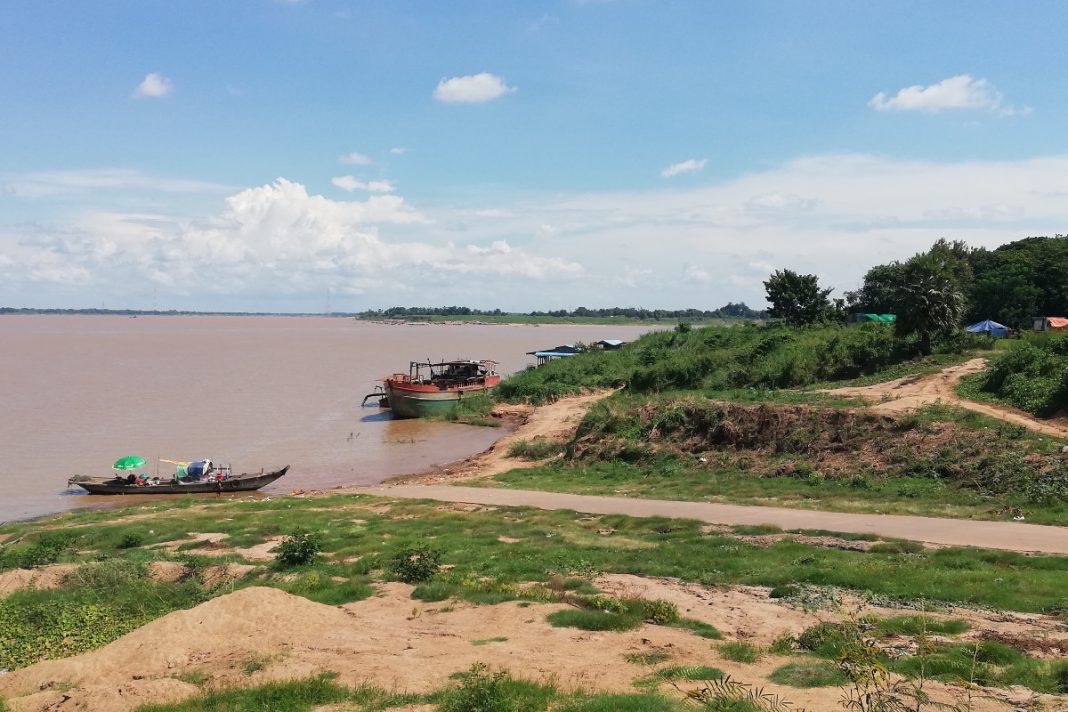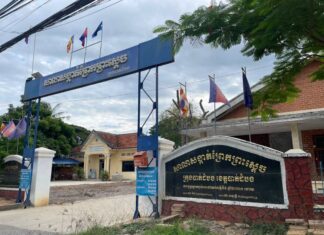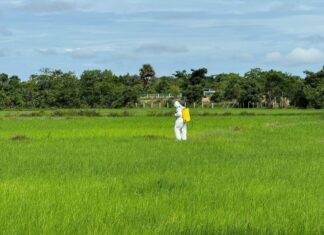A regional researcher has warned that the current drought around the Mekong River could cause a spread of disease and insects and devastation for fish species and food sources.
Ix Hour, a drought management specialist for the intergovernmental Mekong River Commission, told a meeting last week that the effects of drought were wide-ranging, affecting both people and nature.
“Droughts significantly affect the environment, water consumption, agriculture, animal health, biodiversity, community wells, navigation on waterways,” Hour said. Forest fires, insect swarms, diseases due to decreased hygiene and other effects were also likely, he said.
A lack of fresh water could draw salt water into farmland, devastating crops, he added.
Cambodia faced a severe drought in 2016 and again last year, causing irrigation channels to dry up. According to the Water Resources Ministry, Mekong water levels are again virtually as low as last year’s, far below average.
Hour said climate change was causing historic droughts to happen with greater frequency.
Aside from the amount of rainfall, underground water, water management policies and land use could also contribute to drought. Drought was typically measured by rainfall, river flows and soil moisture, he said at the meeting, which was organized by the Cambodian Journalists Alliance.
Water Resources Ministry spokesman Chan Yutha told Newsroom that rainfall had been insufficient early this month, but forecasts were better for the coming weeks.
The government had prepared reservoirs to make sure people had enough water despite the low levels of rain, he said.
“We started our interventions using machines to dig channels … in affected areas,” Yutha said.
Agronomist Yang Saing Koma, who is a founder of the Grassroots Democracy Party, said reservoirs and dams were crucial for farmers to survive periods of drought.
“If we don’t have a dam — and no water — there is no way to farm,” he said.
Sek Romdoul, a famer in Kompong Cham province, said he was struggling with both fishing and farming due to low river levels.
Fewer crops were growing and they were lower quality. “Some people have stopped for a period,” he said.
Without rainfall, some farmers near him were trying to truck in water for their fields, Romdoul said.
Meas Moa, an organic farmer in Takeo province, said he needed some rain soon. He grew 20-30 types of vegetables, but ponds were dry and he had no options, he said.
“I can’t even pump water from the well because there’s no water anywhere.”












